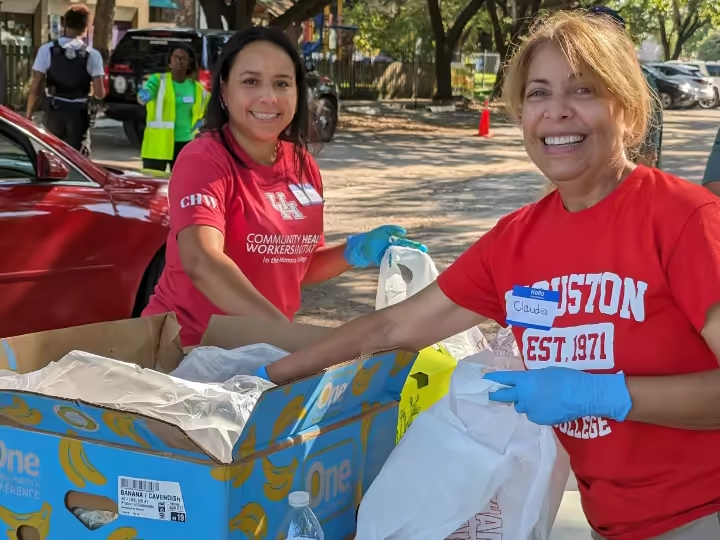Public health workers are the unsung heroes of our community's wellbeing. Often working behind the scenes, these dedicated professionals play a crucial role in maintaining, improving, and safeguarding the health standards of communities, big and small.
In this exploration, we delve into the multifaceted roles they play, their impact on community health, and the value of advanced education in this field.
A Multifaceted Role: The Diverse Responsibilities of Public Health Workers
Public health workers are not confined to one role or setting. Their responsibilities span across various domains, reflecting the complexity of community health. They serve as educators, informing the public about health practices and preventive measures.
They are also researchers, constantly studying the trends and patterns in health to better understand how diseases spread and can be controlled.
In the realm of policy-making, these workers are advocates, using their knowledge and data to influence health policies that benefit the community at large. Their roles extend into emergency response, where they are often among the first to respond to health crises, be it a natural disaster or a pandemic.
Their adaptability and wide range of skills make them indispensable in the ever-evolving landscape of public health.
The Benefits of Pursuing a Master's Degree in Public Health
Pursuing a public health masters degree can be a game-changer for those looking to make a significant impact in this field. This advanced degree offers a comprehensive understanding of public health, equipping students with the skills needed to tackle complex health issues.
This degree provides a blend of knowledge in health policies, environmental health, and many other parts that result in healthier, stronger communities. This multidisciplinary approach is vital in understanding the multifaceted nature of public health challenges. Graduates with an MPH are often sought after for leadership roles, given their advanced skills in critical thinking, problem-solving, and their ability to devise effective health strategies.
The Impact on Community Health: More than Just Medicine
The influence of public health workers extends far beyond the confines of hospitals and clinics. They are instrumental in crafting healthier environments, whether it’s through advocating for clean air and water or ensuring access to healthcare.
Their work in disease prevention and health promotion has a ripple effect, leading to increased longevity and improved quality of life within communities.
Their efforts in educating the public about healthy lifestyles and preventive measures are pivotal in reducing the prevalence of chronic diseases like diabetes and heart disease. By addressing health issues at the community level, they also play a significant role in reducing healthcare costs, benefiting both individuals and the broader economy.
Bridging Gaps: Addressing Health Disparities
Public health workers are often at the forefront of addressing health disparities in communities. They recognize that health is not just a matter of biology but is deeply influenced by socio-economic factors, including education, income, and access to healthcare.
By focusing on these social determinants of health, public health workers strive to create a more equitable health landscape. This involves targeted interventions in underserved areas, advocacy for fair health policies, and a commitment to research that uncovers and addresses the root causes of these disparities.
The Human Touch: Public Health Workers as Pillars of the Community
At the heart of public health work is a deep-seated commitment to serving others. Public health workers are more than just healthcare providers; they are educators, advocates, and leaders who deeply care about the wellbeing of their communities.
Their work often goes unnoticed, yet their impact is profound. They are the connectors who bring together various sectors of society – government, healthcare, education – to forge a healthier future. Their dedication and compassion remind us that at the core of public health is the desire to improve lives, one community at a time.
Teaching and Empowering Communities
One of the most significant roles of public health workers is in education and empowerment. Through various outreach programs, they impart crucial knowledge about health and wellness to the public. This education extends beyond mere information dissemination; it involves actively engaging with communities to empower them in making informed health decisions.
These educational initiatives cover a broad spectrum, from promoting healthy eating and regular exercise to educating about the importance of vaccinations and hygiene practices. Public health workers often tailor these programs to suit the specific needs of different communities, recognizing that a one-size-fits-all approach is seldom effective. For instance, programs targeting adolescents may focus on issues like sexual health and substance abuse, while those for older adults might concentrate on chronic disease management and fall prevention.
Moreover, public health education is not just about preventing illness; it’s also about promoting overall wellness. This includes mental health, an area increasingly recognized as vital to community health.
Public health workers strive to break the stigma surrounding mental health issues and provide resources for support and treatment.
Technology and Innovation in Public Health
The integration of technology and innovation in public health has revolutionized how public health workers operate and interact with the community. The use of digital tools and data analytics has enabled a more efficient and targeted approach to health care delivery and disease prevention.
Mobile health applications, telemedicine, and online health platforms have become increasingly important, especially in reaching remote or underserved communities. These technologies provide vital health information and services, making healthcare more accessible to those who might otherwise have limited access.
Related: The Role of Continuous Education in Respiratory Care: Opportunities and HR Involvement
Conclusion
The role of public health workers in a community is invaluable. They are the guardians of our health, working tirelessly to ensure that everyone, regardless of their background, has the opportunity to live a healthy life.
Their impact is far-reaching, touching every aspect of community health. As we continue to face new health challenges, the role of public health workers will only become more critical, making their contribution indispensable in shaping a healthier, more equitable world.



